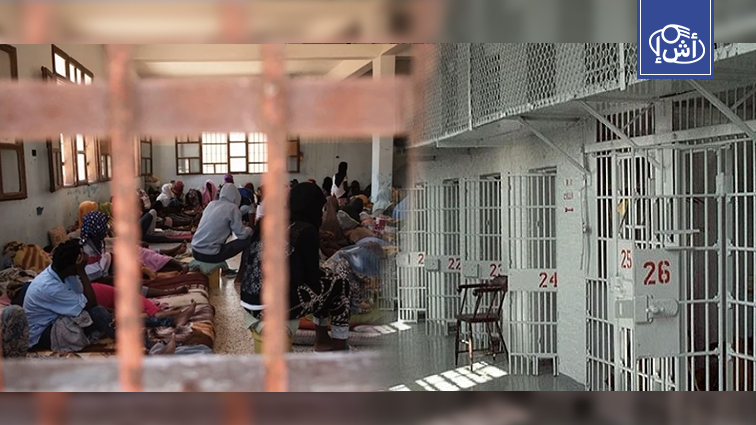The Moroccan community residing in Libya called on the Ministry of Foreign Affairs, African Cooperation and Moroccans Residing Abroad, as well as the consular authorities, to intervene to deport a group of Moroccans imprisoned in Libya to their country.
The claimants stressed that this measure will ensure their closeness to their families, denouncing the marginalization of this group by Moroccan consulates and their exclusion from the consular and judicial assistance system.
A number of Moroccan prisoners in Libya are living in harsh conditions, as it is noteworthy that some of them were thrown into prison under “suspicious circumstances,” and some of them have not yet been subjected to any judicial ruling. Rather, some of them are detained in irregular prisons that are under the control of parties that do not recognize the authority of Libyan state.
Muhammad Hassan Al-Wathiq, Executive Director of the Libyan-Moroccan Friendship Association, stated that the Moroccan Ministry of Foreign Affairs was allocating an annual amount for judicial assistance to Moroccans in Libya, but this assistance benefited only one person in 2012.
Al-Wathiq confirmed that many inmates in prison institutions in Libya are suffering from bad conditions in the absence of any attention from the consular authorities.
Al-Wathiq called on the Moroccan authorities to intervene to inventory and classify the cases of prisoners in Libyan prisons, and to conduct field visits to determine their conditions.
He stressed the importance of empowering them with their rights and benefiting from reform and rehabilitation programs, noting that there are cases of people detained in detention centers outside the control of the Libyan authorities and run by extremist groups.
Nabil Oulad Ahramat Allah, a Moroccan residing in Libya, added that the Libyan Ministry of Interior recently held meetings with a group of consuls representing their countries, during which the issue of transferring convicted citizens to their countries of origin was raised, with the exception of Morocco, which did not move in this direction.
For its part, the Moroccan Consulate in Libya confirmed that it suffers from a lack of human resources and faces great pressure as a result of the great demand for obtaining administrative documents.
It is noteworthy that social affairs employees are charged with tracking the cases of Moroccan citizens in prisons, but they have not yet been brought in from Morocco.
It is noteworthy that in the late 1990s, Morocco and Libya signed an agreement on assisting detained or imprisoned persons and transferring convicts to their homeland.
This agreement stipulates the provision of consular assistance to detainees and requires the competent authority in the condemning state to notify every permanently convicted national of the other state of the possibility of transferring him to his country of origin to carry out his sentence.
Organizing the North African Women’s Clubs Championship in Tunisia after Morocco’s withdrawal
